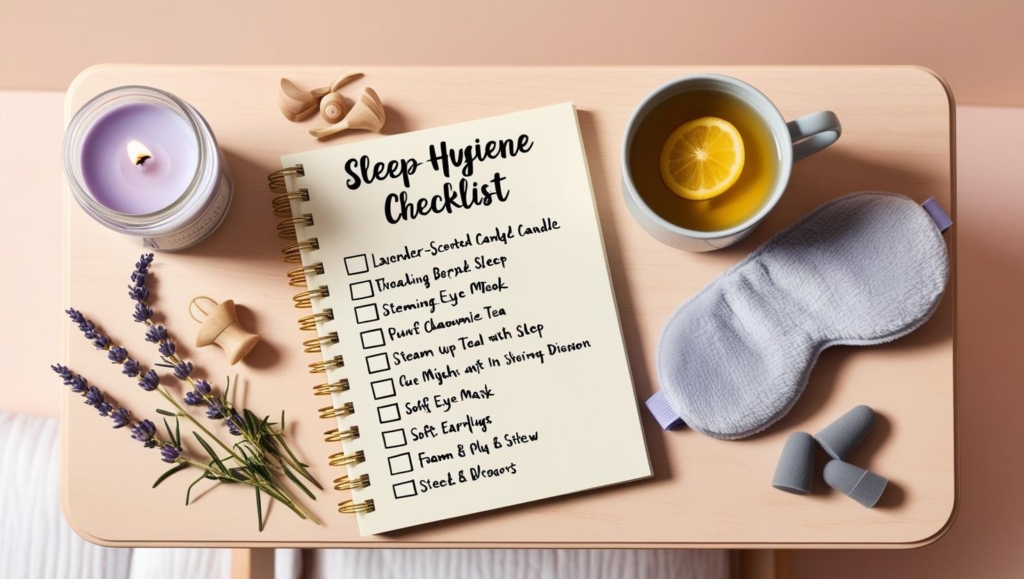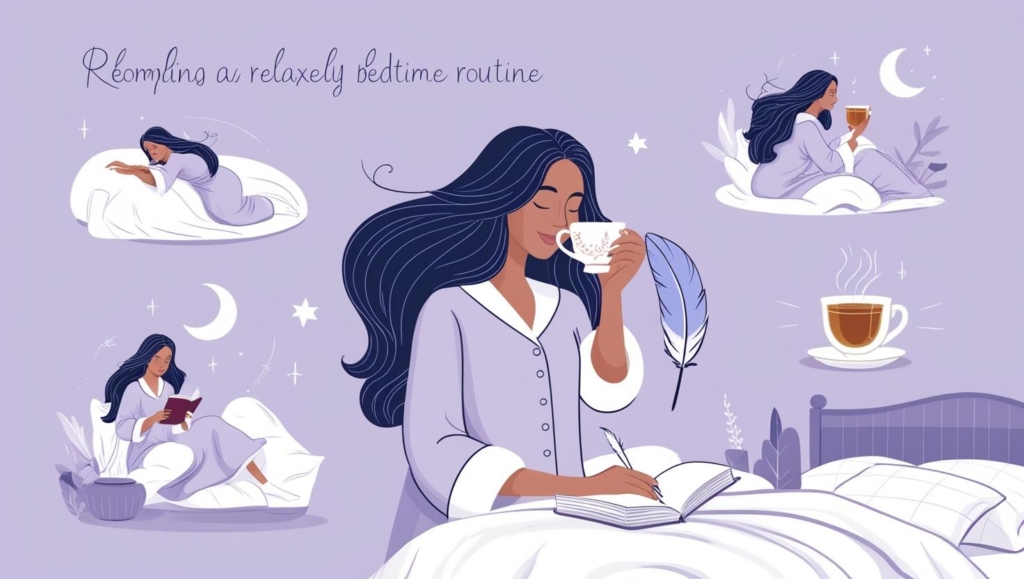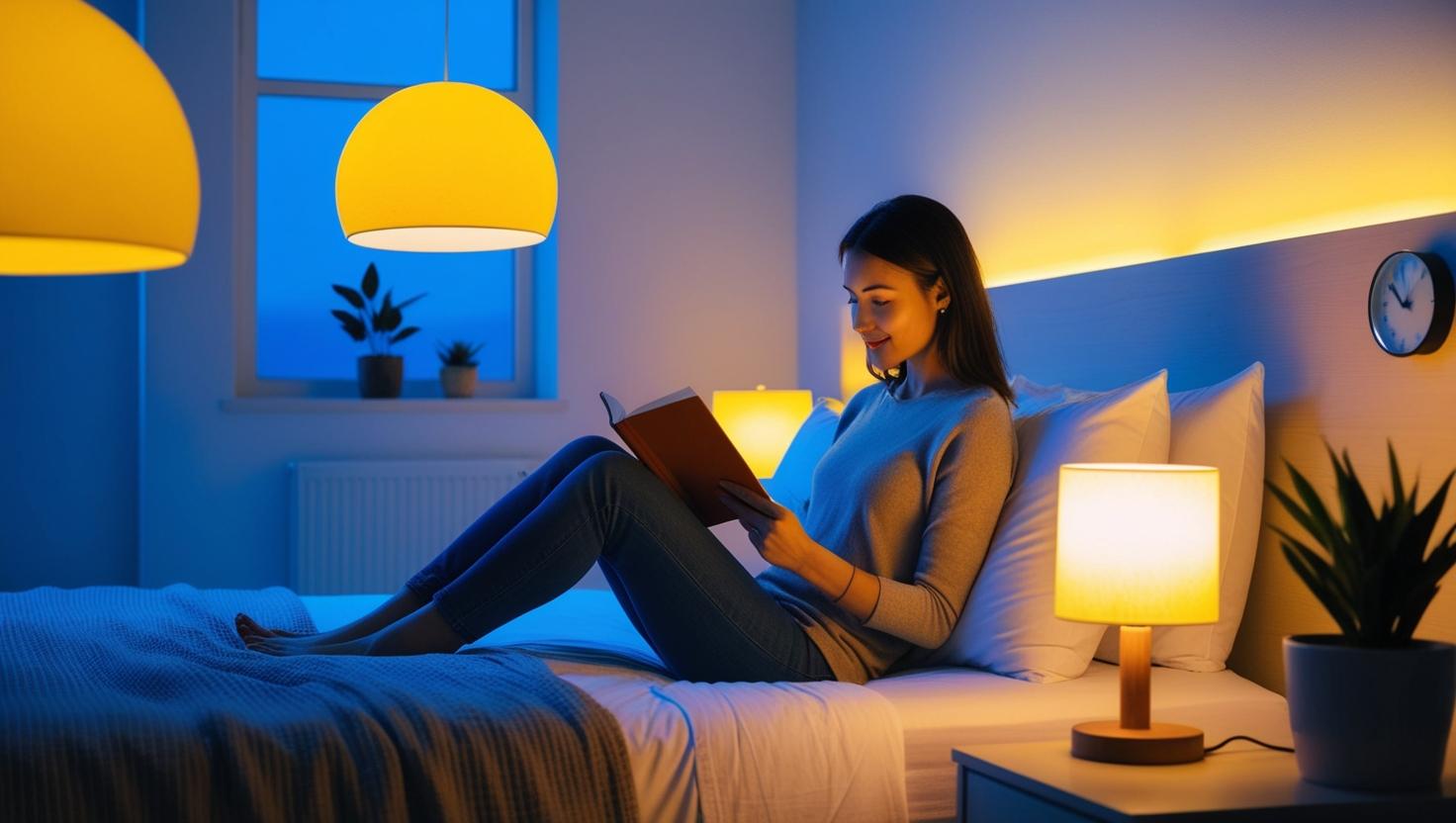“I Thought I Was Sleeping Fine… Until I Fixed This”
Mira, a 42-year-old marketing executive, used to crash into bed by midnight, only to wake up groggy, irritable, and reaching for a third coffee by 10 AM. She assumed it was just stress or age.
But then she heard about sleep hygiene—the habits and routines that influence how well we sleep.
One week after implementing a few simple changes, Mira’s life changed. Her energy soared, her focus sharpened, and—surprisingly—her sugar cravings vanished.
Let’s break down the science and the solutions behind great sleep hygiene, so you can finally rest like your body deserves.
What Is Sleep Hygiene?
Sleep hygiene refers to the healthy habits and routines that promote quality, uninterrupted sleep. Just like dental hygiene keeps your teeth strong, sleep hygiene protects your brain, mood, immunity, and metabolism.
Why It Matters More Than You Think
- Boosts immunity: Poor sleep weakens your ability to fight illness.
- Regulates weight: Sleep-deprived bodies produce more ghrelin (the hunger hormone).
- Sharpens memory and focus
- Reduces anxiety and depression
- Balances hormones and blood sugar
According to the CDC, nearly 1 in 3 adults don’t get enough sleep. And poor sleep doesn’t just affect your mood—it silently chips away at your long-term health.
The 7 Secrets to Amazing Sleep Hygiene

1. Stick to a Consistent Sleep Schedule
Even on weekends.
Your body thrives on rhythm. Going to bed and waking up at the same time resets your internal clock—making it easier to fall asleep and wake up without feeling groggy.
🧠 Tip: Try to sleep within the same 30-minute window every night.
2. Make Your Bedroom a Sleep Sanctuary
Your room should whisper “rest,” not “Netflix and work.”
- Use blackout curtains
- Keep it cool (60-67°F or 16-19°C is ideal)
- Ditch screens 1 hour before bed
- Invest in a quality mattress and pillow
Story Snap: After replacing her old mattress, Mira reported waking up pain-free for the first time in years.
3. Wind Down with a Pre-Sleep Routine
Signal your brain it’s time to shut down:
- Warm shower
- Herbal tea (chamomile or valerian root)
- Journaling or gentle stretching
- Reading a non-stimulating book
4. Limit Caffeine and Alcohol in the Evenings
Caffeine can stay in your system for up to 8 hours, while alcohol disrupts REM sleep, even if it helps you doze off.
Switch to decaf or herbal teas by mid-afternoon, and avoid alcohol 3 hours before bedtime.
5. Get Morning Sunlight
Exposing your eyes to sunlight within 1 hour of waking up helps reset your circadian rhythm. It’s like hitting the body’s natural “start” button.
10–15 minutes outside is enough, even on cloudy days.
6. Move Your Body (But Not Right Before Bed)
Regular exercise improves sleep quality—but avoid intense workouts within 2 hours of bedtime, which can over-stimulate your system.
Yoga or walking in the evening is perfect for calming the mind.
7. Don’t Force Sleep
If you’re tossing and turning, get up and do something relaxing under dim light—like reading or meditating—until you feel sleepy again.
Never lie in bed awake for long periods. This teaches your brain that your bed is a place for worry, not rest.

Supplements and Natural Helpers (Use Wisely)
- Magnesium Glycinate – Supports muscle relaxation
- Melatonin (short term only) – Helps reset disrupted sleep cycles
- L-Theanine – Calms the mind without sedation
- Lavender oil or diffuser – Relaxing scent therapy
Always consult a doctor before using sleep aids—natural or not.
Signs Your Sleep Hygiene Needs Work
- Difficulty falling asleep or waking up
- Daytime fatigue
- Frequent nighttime awakenings
- Mood swings or low energy
The Fittrru Action Plan
- Audit Your Bedroom – Make it cool, dark, and quiet
- Create a Pre-Bed Ritual – Set a calming 30-minute routine
- Sunlight + Movement – Get morning sun and daily movement
- Track Your Sleep – Use a sleep tracker to observe patterns
- Be Patient – Sleep hygiene is a habit. It pays off.

Final Word: It’s Not Just About Hours, It’s About Quality
You could sleep 8 hours and still wake up drained if your sleep hygiene is poor.
Start small. Change one habit at a time.
Just like Mira, you might realize you weren’t “just tired”—you were living below your best, without knowing it.
Sources
- National Sleep Foundation: www.sleepfoundation.org
- Mayo Clinic Sleep Center
- Harvard Medical School: Division of Sleep Medicine






